A History of Unusual Presidential Inaugurations
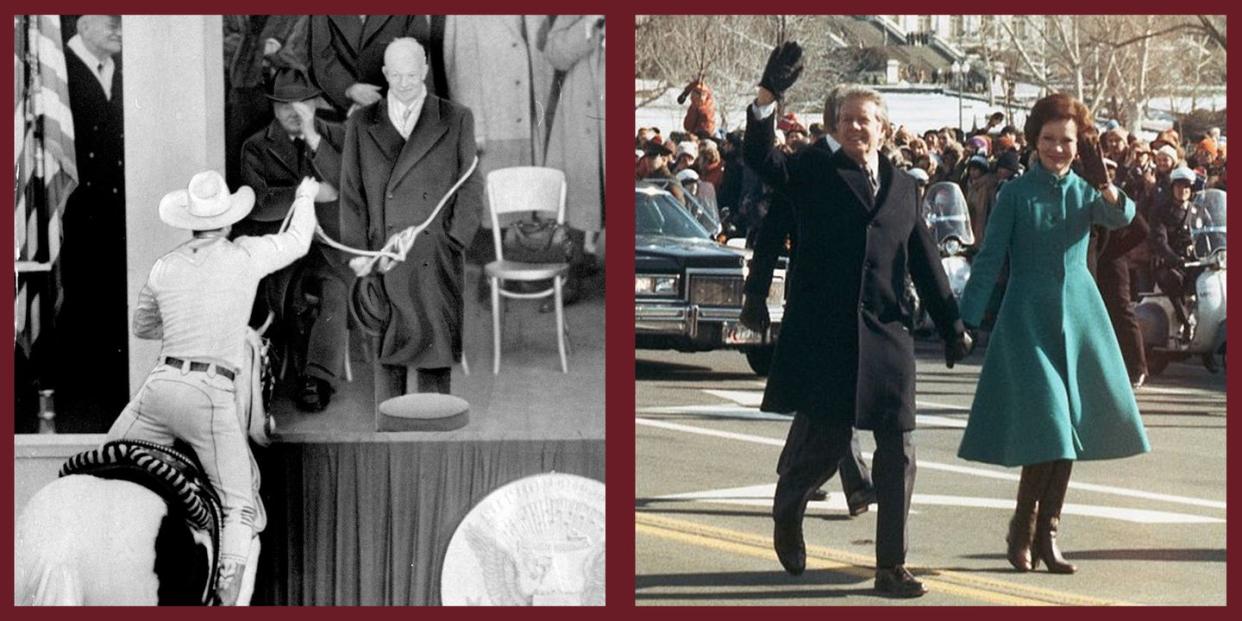
The recent assault on the Capitol building and the ongoing Covid-19 pandemic have upended all aspects of the 59th presidential inauguration. When Joe Biden and Kamala Harris are sworn into office tomorrow in Washington, D.C., many of the traditional activities, such as the parade and inaugural balls, will be done virtually or skipped altogether.
It won’t be the first time, however, that an inauguration goes by a different script. Though circumstances were largely different, many previous presidential transition ceremonies were modified due to ongoing events, extreme weather, or simply because of the personal preference of the new commander-in-chief. Some involved rodeo tricks and flocks of birds, while others featured rowdy parties at the White House. One inauguration was even suspected to be the cause of the new president's untimely death.
Here, a history of unusual presidential inaugurations.
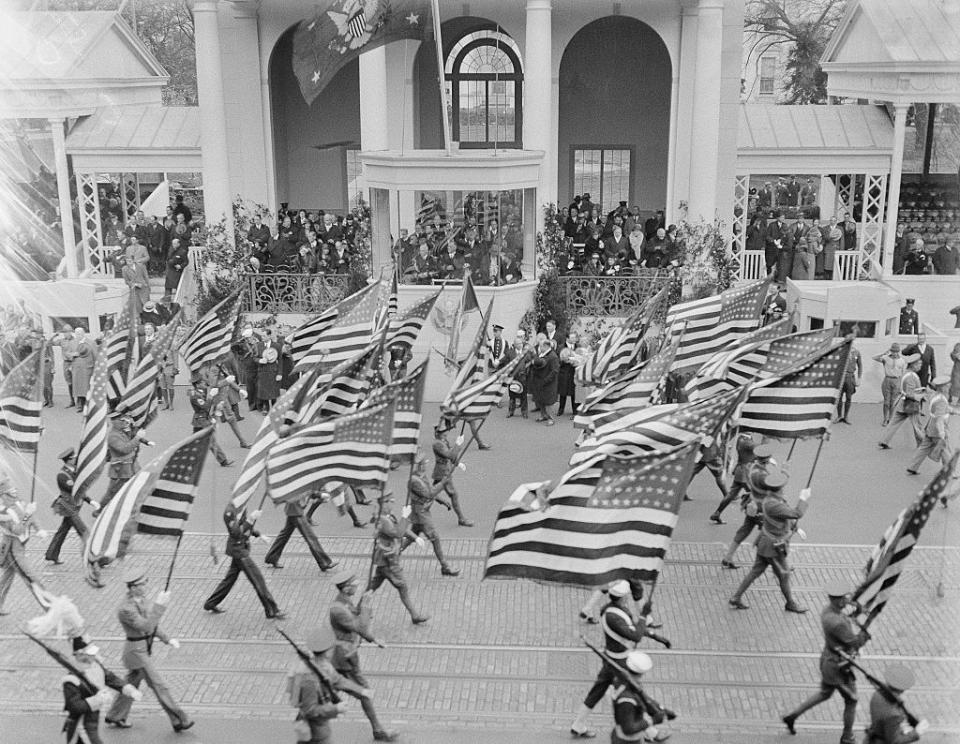
Andrew Jackson's rowdy house party nearly destroyed the White House.
After his inauguration on March 4, 1829, Andrew Jackson invited a crowd back to the White House for an "open house." The gathering grew to 20,000 people and, as the alcohol flowed, the event spiraled out of control.
China and furniture were broken, and food and drink spilled on nearly every surface. It took a week to clean and scrub the White House, leading a Supreme Court justice to lament, "The reign of King Mob seemed triumphant." The new president even had to be whisked away from the festivities to escape the crush of people.
Cowboys and canaries: animals have played a role in some ceremonies.
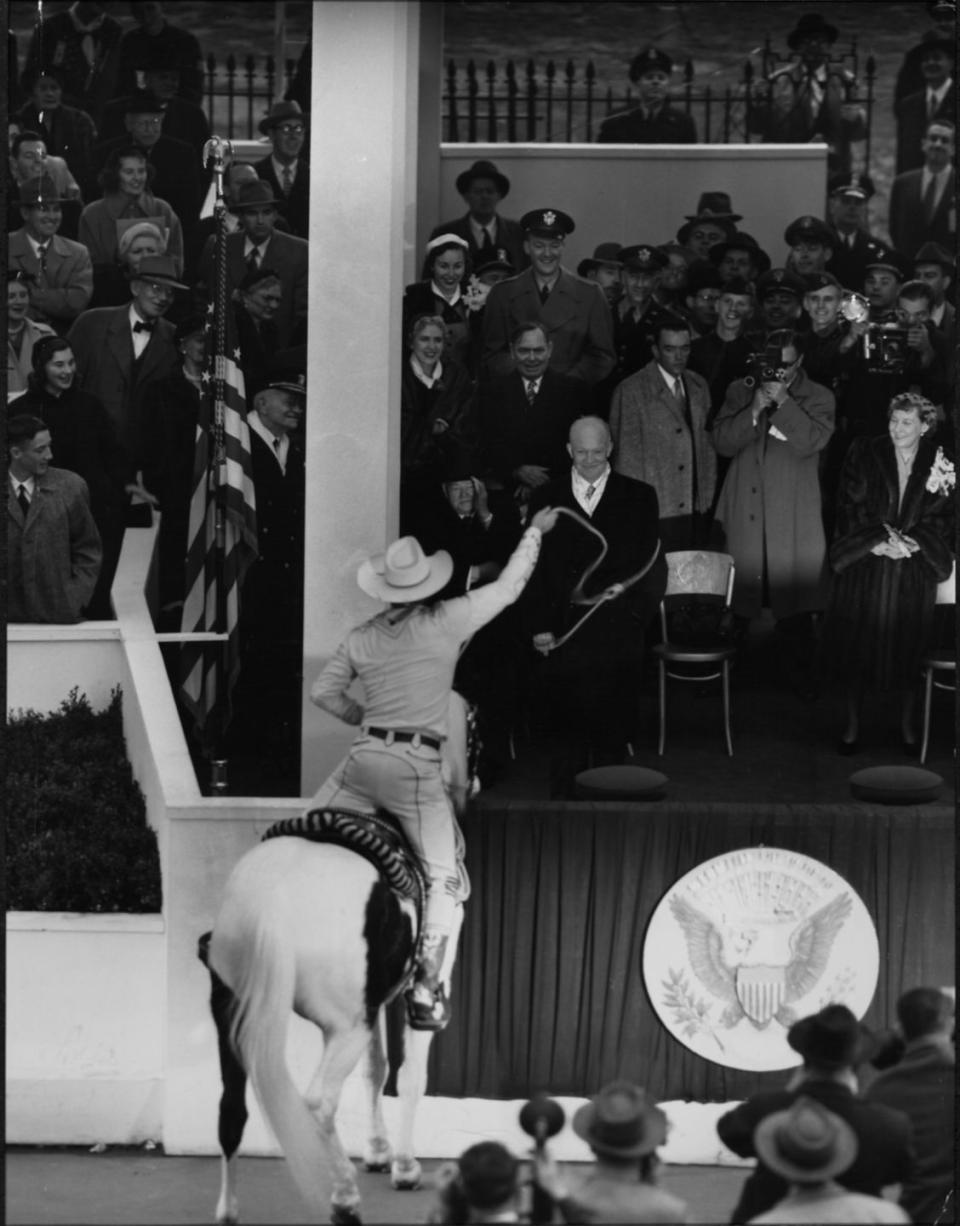
Perhaps one of the most humorous moments in inauguration history came in 1953, when a cowboy named Monty Montana, saddled on his horse, lassoed President Eisenhower (with permission from the Secret Service) as part of the inauguration celebrations.
Ulysses S. Grant's second inauguration in 1873 occurred on Washington D.C.'s coldest recorded day in March: it was 4 degrees in the morning, and rose only to 16 degrees by noon, with winds of 40 mph. At the inaugural ball, which was held in a temporary building, there was a gruesome outcome: dozens of canaries, which had been brought to sing for the attendees, froze to death in their cages.
Freezing weather and a record-setting speech.
On March 4, 1841, William Henry Harrison was inaugurated as the nation's ninth president. It was a cold day, but he chose not to wear a hat, gloves, or overcoat. At 8,445 words, his inaugural address also was the longest on record, and 32 days into his term, Harrison died of pneumonia, which has long been attributed to his lengthy exposure to the harsh weather at his inauguration, although some historians believe that drinking contaminated water contributed to his illness.
Harrison was the first president to die in office, and, until Ronald Reagan, he was the oldest person to assume the presidency. (Harrison was inaugurated at age 68; Reagan was 69. Donald Trump, who took the oath at age 70, now holds the record, though this will soon be eclipsed by Joe Biden, who will be 78 on inauguration day.)
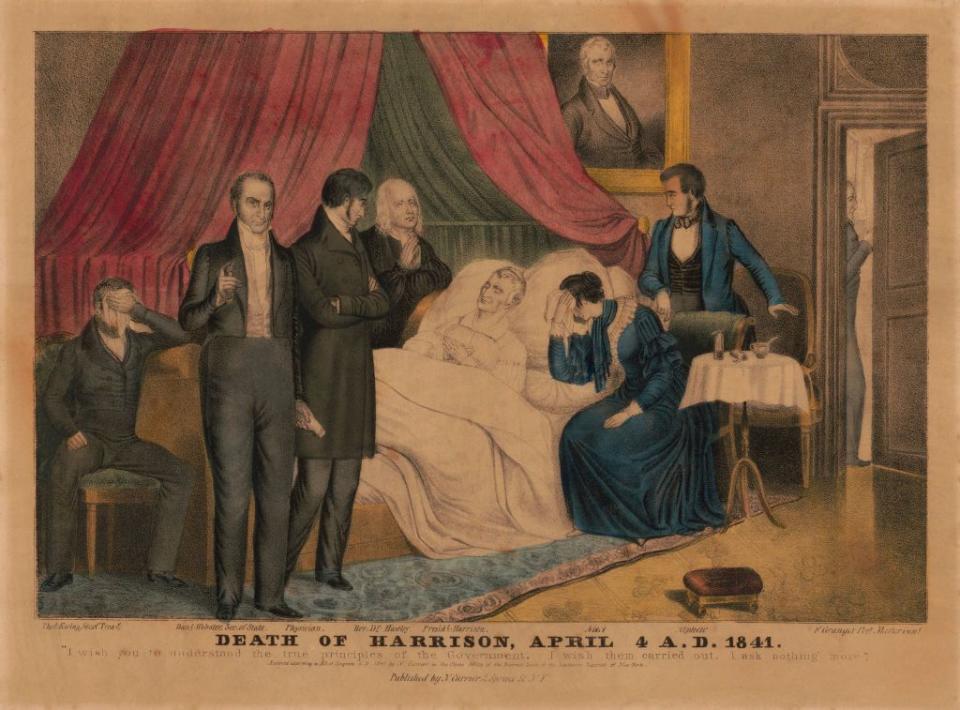
Many wartime inaugurations were somber affairs, and inaugural balls have been canceled before.
Woodrow Wilson felt it was inappropriate to hold a ball during what he believed should be a solemn occasion, and requested that it be canceled for his inauguration in 1913.
His successor, Warren G. Harding, also felt lavish balls were uncalled for, and refused to hold an official one for his 1921 inauguration (though unofficial balls, called "charity balls" were held at embassies, according to a United Press International article from the time).
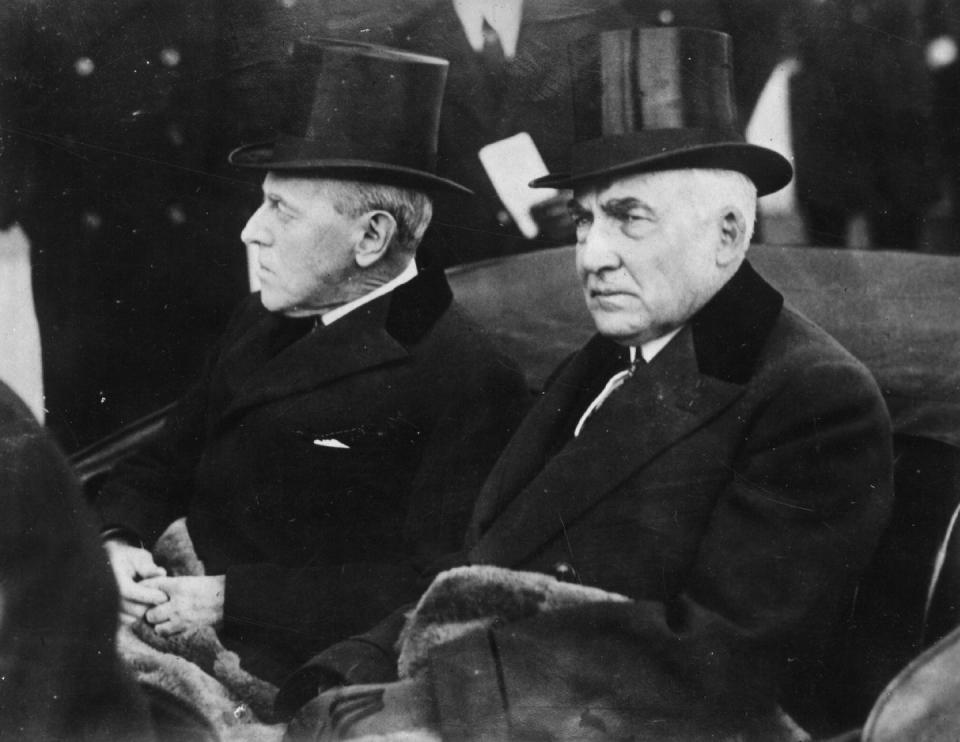
All four of Franklin Delano Roosevelt's inaugurations were held during times of strife, domestic and foreign, and were therefore scaled-down affairs. His first inauguration in 1933 was the only one to have an inaugural ball, which he did not attend. His final inauguration occurred in January of 1945 at the height of World War II, and the parade was canceled due to gas rationing and a lumber shortage.
Biden's inauguration will take many cues from last year's Democratic National Convention.
The ceremonial aspects of Joe Biden's inauguration were been pared down, due to the ongoing pandemic. James Clyburn, the House Majority Whip and chair of Biden's inaugural committee, told MSNBC: "We will be setting an example with this inauguration. It is going to be, I may call it, hybrid. He will take the oath in the traditional way, but all of the inaugural festivities are going to be 80% virtual."
Clyburn added that the 2020 Democratic National Convention, which was almost entirely virtual, would be a model for the inauguration.
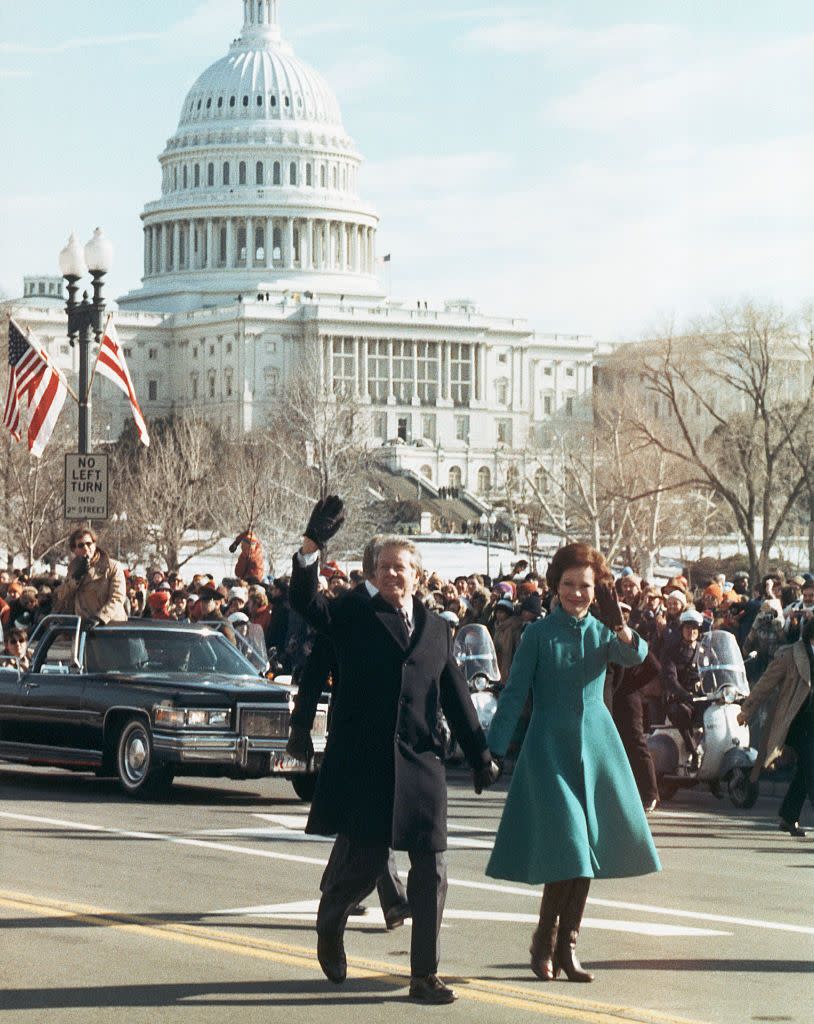
You Might Also Like

